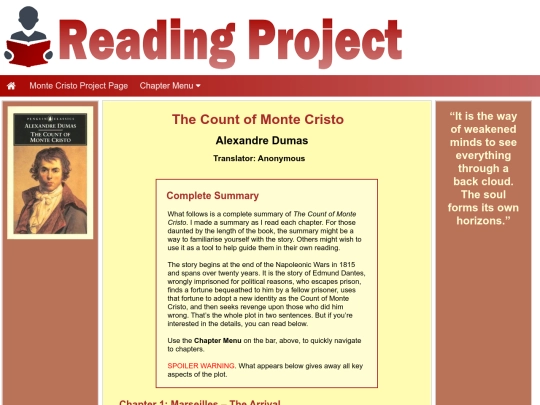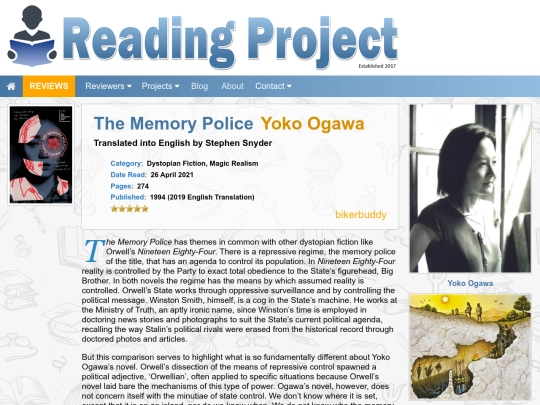Neocities.org

 letslearntogether
3 years ago
letslearntogether
3 years ago
Thanks! I hadn't heard of "The Tomb of God" before. The mention of Templars syncs up with some research that I've been doing lately, particularly a documentary by a man named of Rory Duff called "Holy Grail Found" (free on YouTube). But anyway, you are quite right!
 letslearntogether
3 years ago
letslearntogether
3 years ago
Woah, sounds intense! Like "Everywhere at the End of Time" in the form of a novel.
 readingproject
3 years ago
readingproject
3 years ago
I’m exceptionally ignorant when it comes to music, but I’ll take your word for it.
 letslearntogether
3 years ago
letslearntogether
3 years ago
I just meant that the missing sense of self and the reduced ability to function that accompanies the loss of memory seems frightening. That album explores a similar concept, but as a result of dementia. Since even Nature itself seems to bend to the whims of The Memory Police, perhaps they are a metaphor for a condition that produces that kind of amnesia? This idea also carries over to Plato's allegory of the cave.
 letslearntogether
3 years ago
letslearntogether
3 years ago
The Pythagoreans had a concept that people forgot their sense of Oneness and regained it only by recalling it once more. This act of remembering is referred to as "anamnesis" and it is triggered by learning about archetypes (i.e.: Plato's "World of Forms"). The shadows on the walls of the cave (i.e.: the things that we sense) are a projection of those archetypes, and the light that produces them is The One.
 letslearntogether
3 years ago
letslearntogether
3 years ago
However, we can only experience it ("henosis", a "knowing of Oneness") by leaving the cave and seeing the Sun outside. This connects to their belief in the transmigration of the soul ("metempsychosis"). If all of our lives are unified, why is it that we forget our experiences from life-to-life? There is something within the afterlife that makes us forget.
 letslearntogether
3 years ago
letslearntogether
3 years ago
In the Eleusinian Mysteries, another Greek spiritual teaching, this is symbolized by a stream that one encounters upon dying. Drinking from its waters leads to memory loss. After going through the associated rituals, people were said to no longer have a fear of death because they learned that death was not "the end". They remembered not to drink the water.
 letslearntogether
3 years ago
letslearntogether
3 years ago
...Anyway, sorry to put so many comments. It sounds interesting. Thank you for sharing.
 readingproject
3 years ago
readingproject
3 years ago
Your idea that the novel might reflect a psychological rather than political reality - like dementia - would seem to be a totally valid way to approach the novel. Another review I read also suggested that the book is a metaphor for the process of dying, which makes sense when you consider aspects of the story closer to the end that I haven’t revealed. I wanted to give the book a fairly unified reading so I stuck to a
 readingproject
3 years ago
readingproject
3 years ago
Dystopian approach. The political aspect interested me because we have seen Trumpism twist reality in an Orwellian fashion I wouldn’t have believed possible five years ago. I was interested in the psychological impact of that, which I think this book represents really well, allegorically. The idea of Platonic forms as ametaphor for the soul, which is an essential belief in a unified self/identity, seemed so perfect
 readingproject
3 years ago
readingproject
3 years ago
second ago As a representation of political oppression: of the disintegration of an autonomous self. As I said, this was my was of approaching the book, but it’s a novel rich in potential readings. Thanks for your interest!




































































































































































































Art can be quite "geometric" sometimes. The unity that these sorts of mathematical methods show throughout all of it can be beautiful in and of itself. Thanks again for reading!